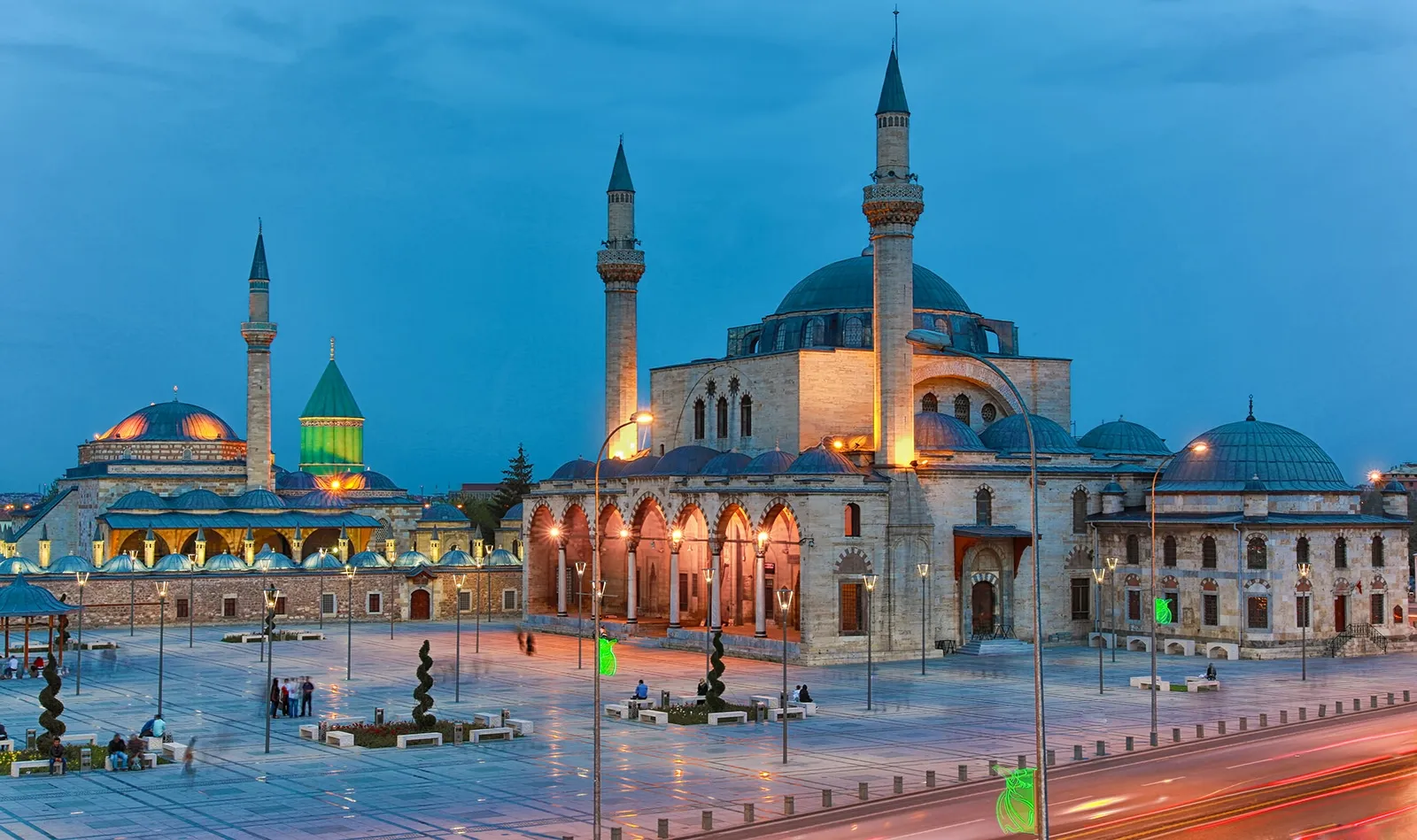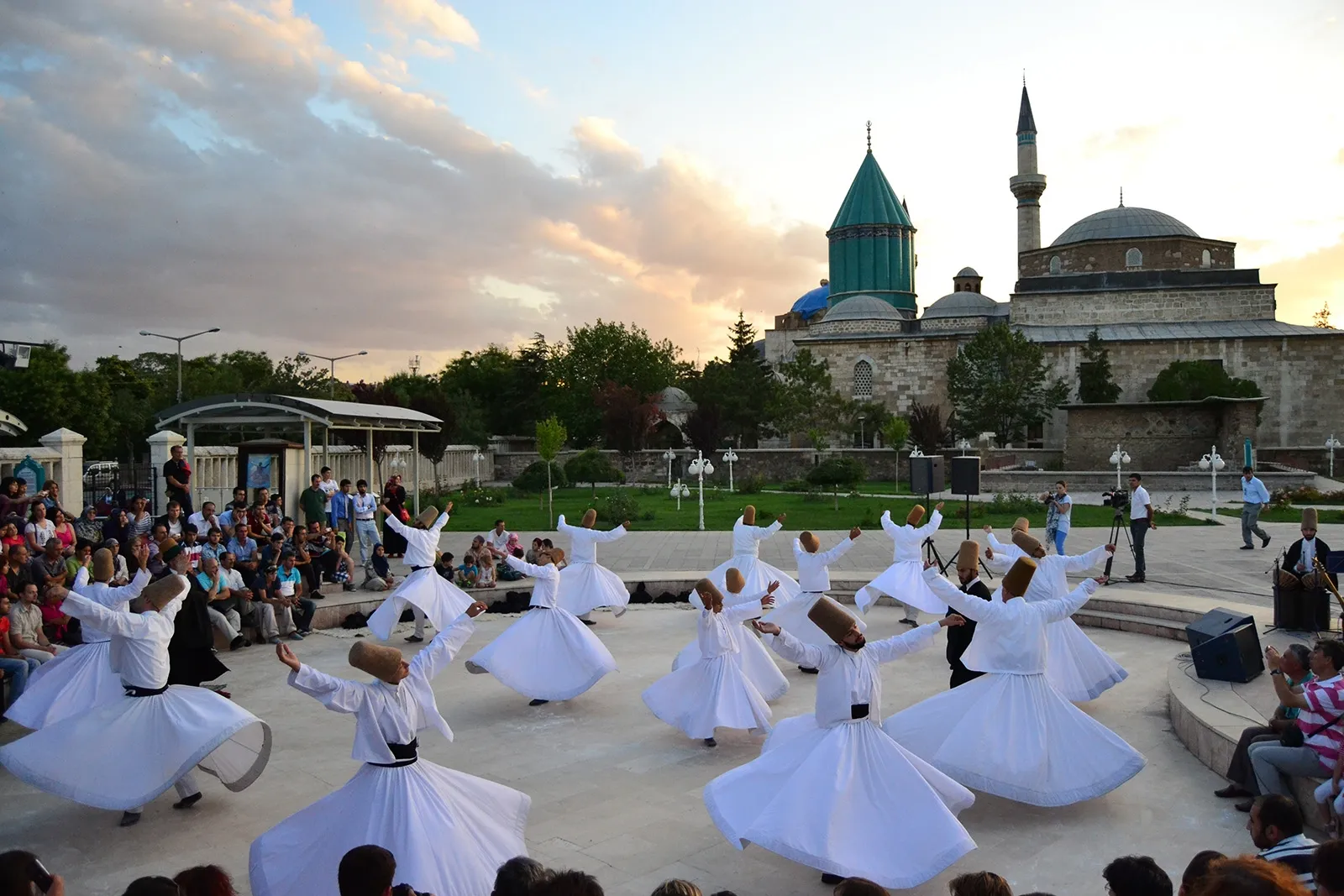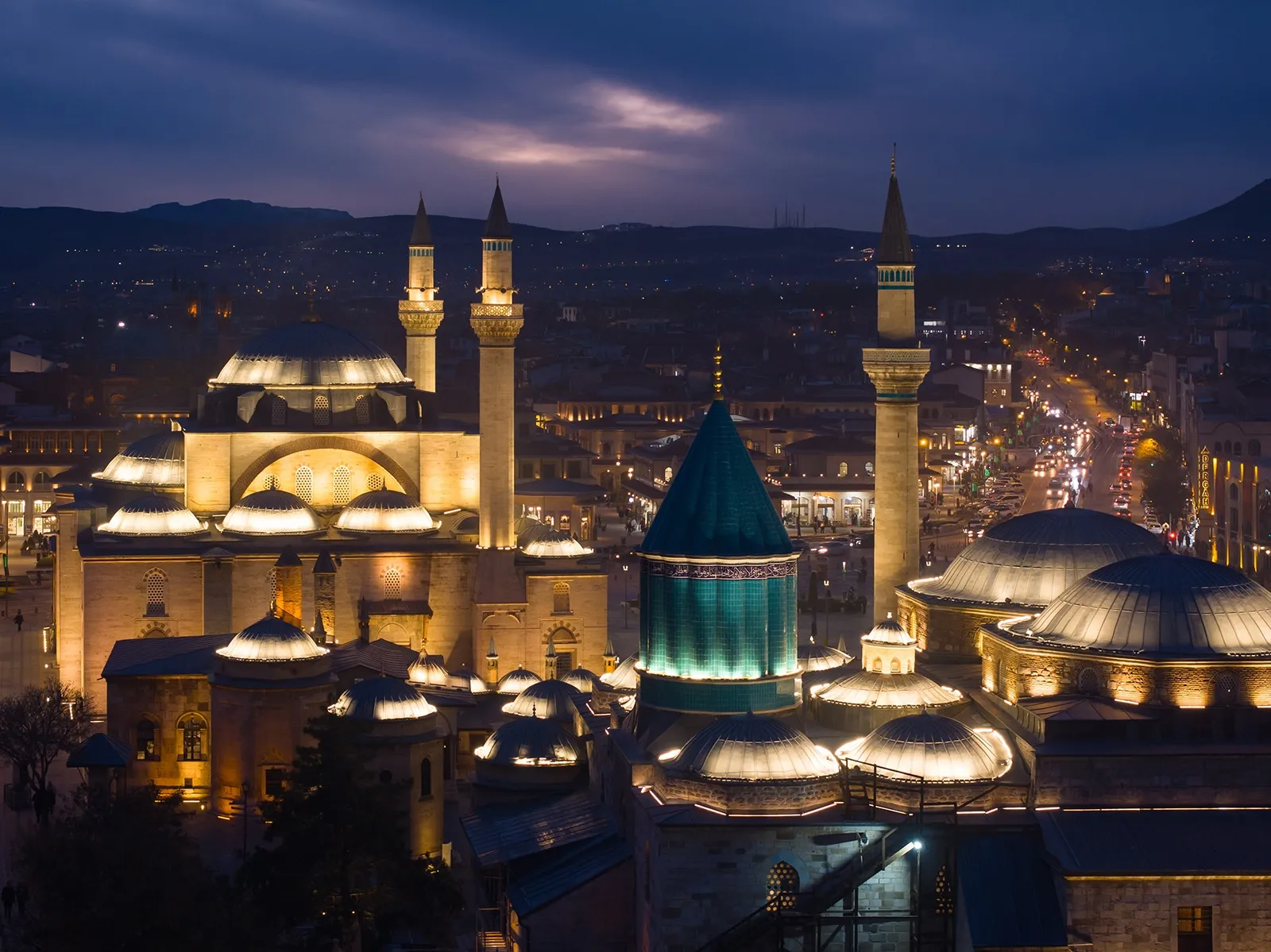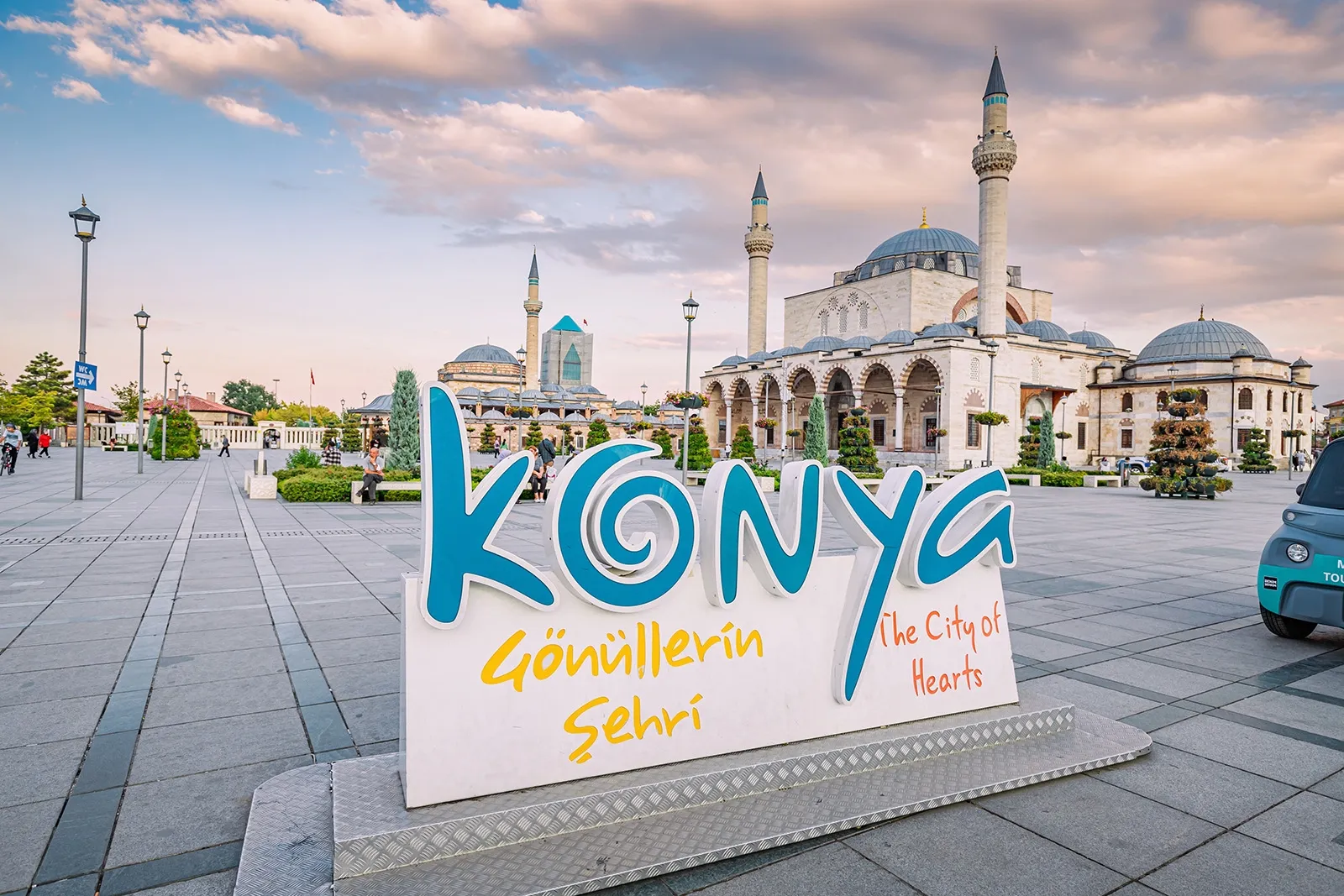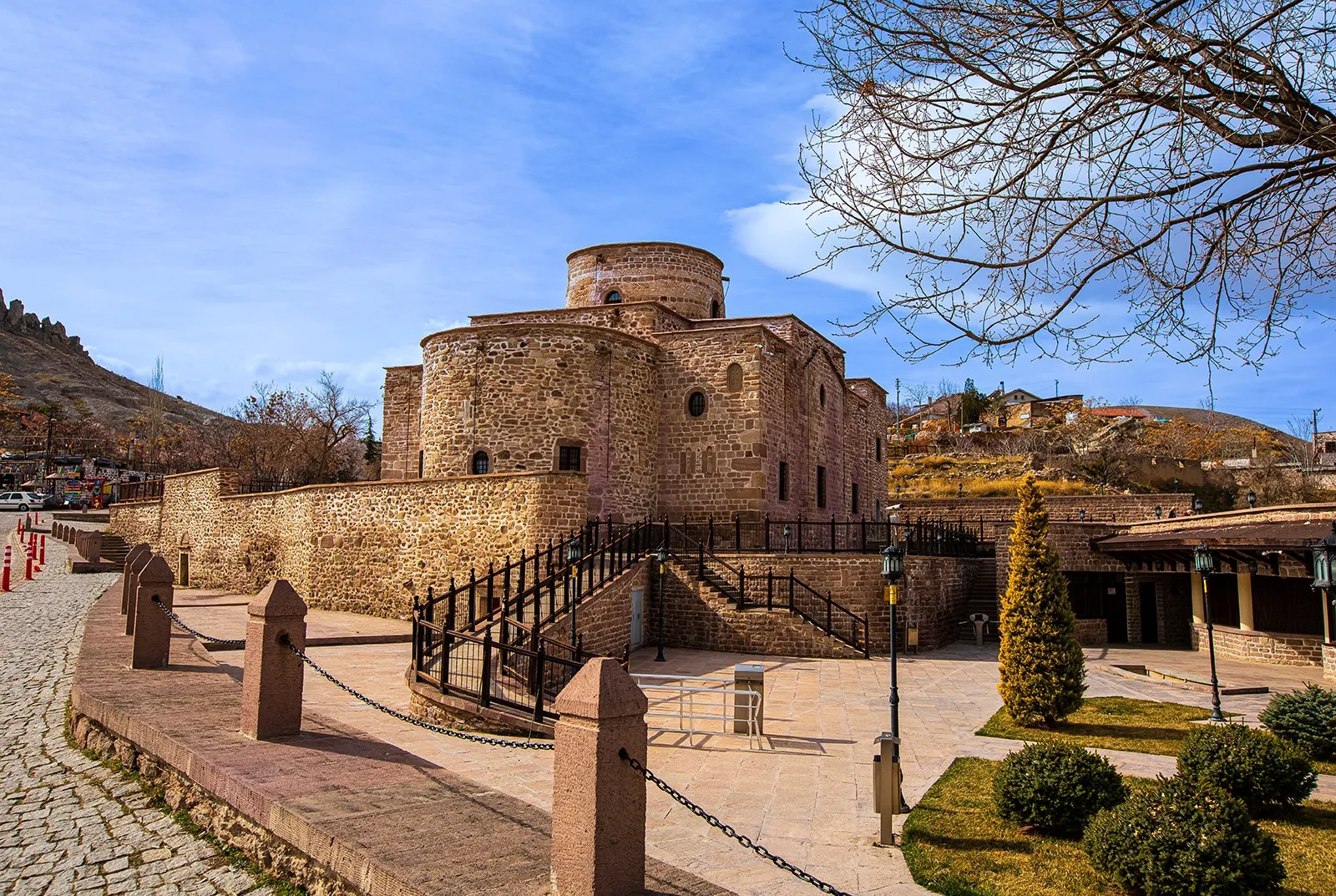Konya
Land of the Sufis
Konya, one of Türkiye’s oldest cities, stands as a beacon of historical grandeur, spiritual significance, and cultural richness. Located in the heart of the Anatolian Plateau, Konya has been a cradle of various civilizations, from the Hittites to the Seljuks and the Ottomans. Today, it is best known as the home of the Whirling Dervishes and the final resting place of the renowned Sufi mystic, Rumi.
Konya's history stretches back to ancient times, with archaeological evidence suggesting human settlement as early as 3000 BCE. The city's historical significance is underscored by its role as the capital of the Seljuk Sultanate of Rum during the 12th and 13th centuries. This period marked a zenith in Konya's architectural and cultural development, leaving behind a legacy of remarkable monuments.
Konya's spiritual significance is primarily rooted in its association with Jalaluddin Rumi, the 13th-century poet and Sufi mystic. Rumi, known for his profound spiritual teachings and poetry, spent the latter part of his life in Konya, where he established the Mevlevi Order, also known as the Whirling Dervishes. His mausoleum, the Mevlana Museum, is the city's most visited attraction, drawing pilgrims and tourists from around the world.
Konya is an attractive tourist destination with its rich historical heritage, profound spiritual significance, vibrant cultural scene, and stunning natural beauty. From exploring the architectural marvels of the Seljuk era and experiencing the spiritual depth of Rumi's teachings to indulging in the city's culinary delights and immersing oneself in its natural landscapes, Konya offers a multifaceted and enriching travel experience. As a city that harmoniously blends the past with the present, Konya invites visitors to embark on a journey of discovery, reflection, and appreciation of its timeless charm and enduring spirit.
The Silk Road was a conduit for more than just goods; it was a channel for cultural and intellectual exchange. Konya, as a prominent city on this route, became a melting pot of diverse cultures and ideas. The interaction between different civilizations enriched the city’s cultural heritage, leaving a lasting legacy that is evident even today.
Konya’s historical significance and cultural richness are inextricably linked to its role on the Silk Road. As a hub of trade and commerce, the city prospered economically, allowing for the flourishing of arts, architecture, and scholarship. The cultural exchanges facilitated by the Silk Road enriched Konya’s heritage, creating a vibrant tapestry of diverse influences.

